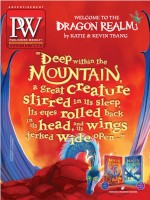I was straight for part of my life. Most gay people were, at least when I was growing up. I kissed some boys and worried about finding a date to prom, all the while falling headlong for my friends who were girls. I thought everyone felt this way—at least until one of my crushes broke my heart so thoroughly that I had to reconsider my assumptions.
Then I read Fried Green Tomatoes at the Whistle Stop Café, and the scales fell from my eyes. Simply put, since I had never been exposed to an alternative, I had reversed the definitions of like and love in my mind. It was 1992 when I figured that out; I was 17, and I flipped through the card catalog at my local library in suburban Chicago, desperate to find books about me so I could wrap my brain around this change in circumstances and maybe figure out how to envision my own future.
In case you were wondering, the pickings at the Libertyville Public Library were slim.
Since then, there’s been a fairly miraculous change in the world around me—first in representation of the LGBT+ community on film and in print and then in authentic stories finding greater purchase in publishing through the #OwnVoices movement. What I love about #OwnVoices is that people are starting to catch up (admittedly, not without some backsliding) with the very true idea that minority stories of all different types are relevant to everyone. At their foundation, stories transport, educate, and cradle us. Storytelling has always been a critical part of being human, and diverse storytelling is a critical part of crafting a global society that works for everyone, not just a privileged few.
I believe there’s been wide benefit from the #OwnVoices movement—both for writers finding outlets for their work as well as for readers who now have a much richer selection of stories available to them. I find it interesting, then, that the We Need Diverse Books organization has decided to stop using the #OwnVoices term. In a recent blog post, WNDB says it sees #OwnVoices as having become a “ ‘catch all’ marketing term” and is moving to particularize (and personalize) authors more in its descriptions. Bitch Media also ran an extensive article about the problems with this approach to promoting diversity and authentic storytelling.
But have we, in our push for progress, fallen into an unexpected trap?
I’ve been resistant to categorization my entire life (which, believe me, has not been easy for my parents). I splash around in the deep end of gray areas and kind of love that I’ve left a long trail of confounded people in my wake. I’ve had a career in technology for a quarter century, very often as the only woman on my team. I wear men’s clothes, do most of the cooking in my house, have a well-used sewing machine that’s almost as old as I am, and, okay, I get man crushes sometimes. So, as much as I’ve appreciated (and benefited from) the #OwnVoices label, labels in general make me suspicious.
The beauty of fiction is that it has always gone beyond the lived experience of the author: that’s what research is for, what networks are for, and how sensitivity readers can help. I write literature that explores love, family, and friendship, and I’m committed to writing authentic characters with universal experiences. After a lifetime of living in a world that either wasn’t quite sure what to do with me or was downright hostile, I don’t want to be boxed in with my art. I also don’t want a stupid hashtag to provide cover for inauthentic, substandard writing acquired to fill quotas or facilitate marketing and sales.
I want diversity in storytelling to be celebrated and promoted no matter who is writing, which requires much more than a hashtag; it requires diversity within the ranks of people in power—the gatekeepers, the tastemakers. It requires us all to try hard to put ourselves into other people’s shoes and challenge ourselves to deeply understand and empathize with a variety of experiences. Frankly, it requires more (and more delicate and thoughtful) work than I suspect most people want to put in.
Publishing is a business, and business thrives on formula, efficiency, and succinct and compelling marketing. But publishing is also a conduit for art, which means that everyone in it, writers included, needs to be held to a higher, more exacting standard. There are important stories to tell—stories that can bring us together and illuminate dark corners.
Maybe #OwnVoices isn’t the best solution to this, but bringing diversity and authentic voices to a broader audience has never been an easy problem to solve, and I’ve learned to take what I can get without stopping my push for something better.
Amanda Kabak has been a recipient of the Al Simak Award for Fiction from Arcturus Review. Brain Mill Press will publish her newest novel, Upended, July 20.



 Volume 268
Issue 27
07/05/2021
Volume 268
Issue 27
07/05/2021





